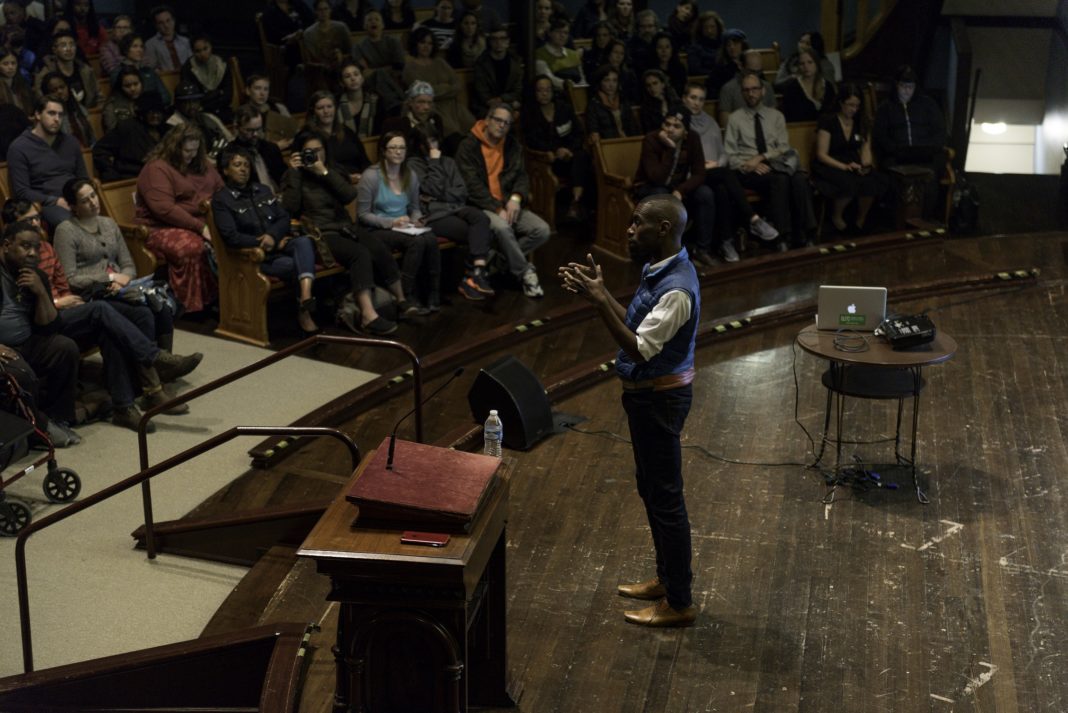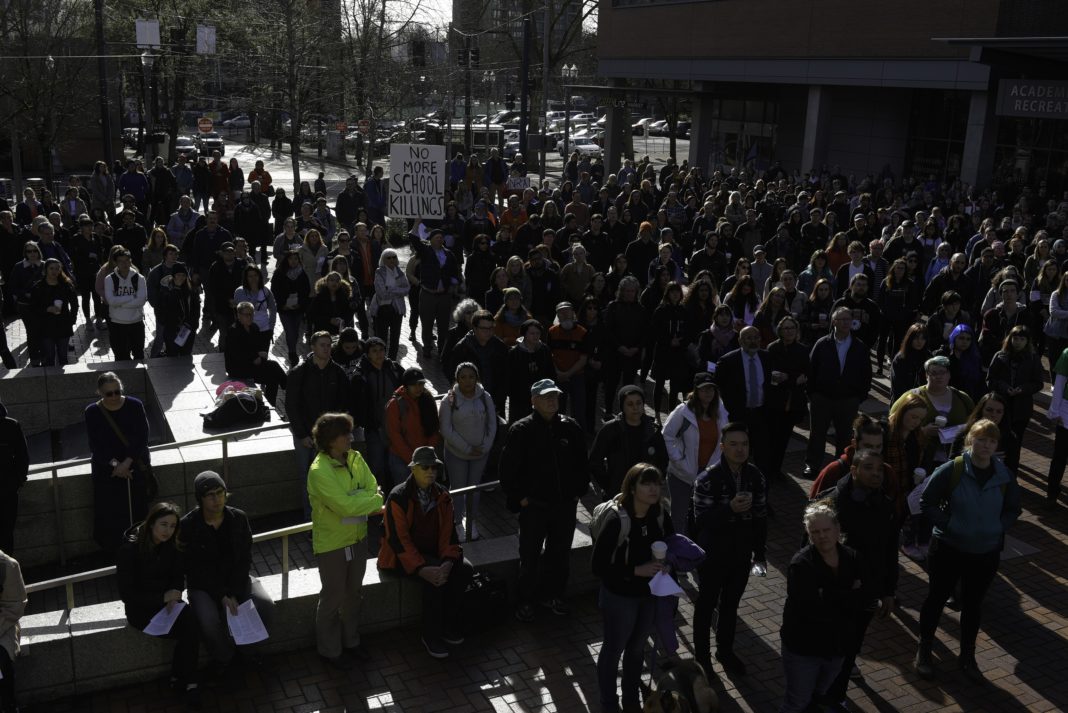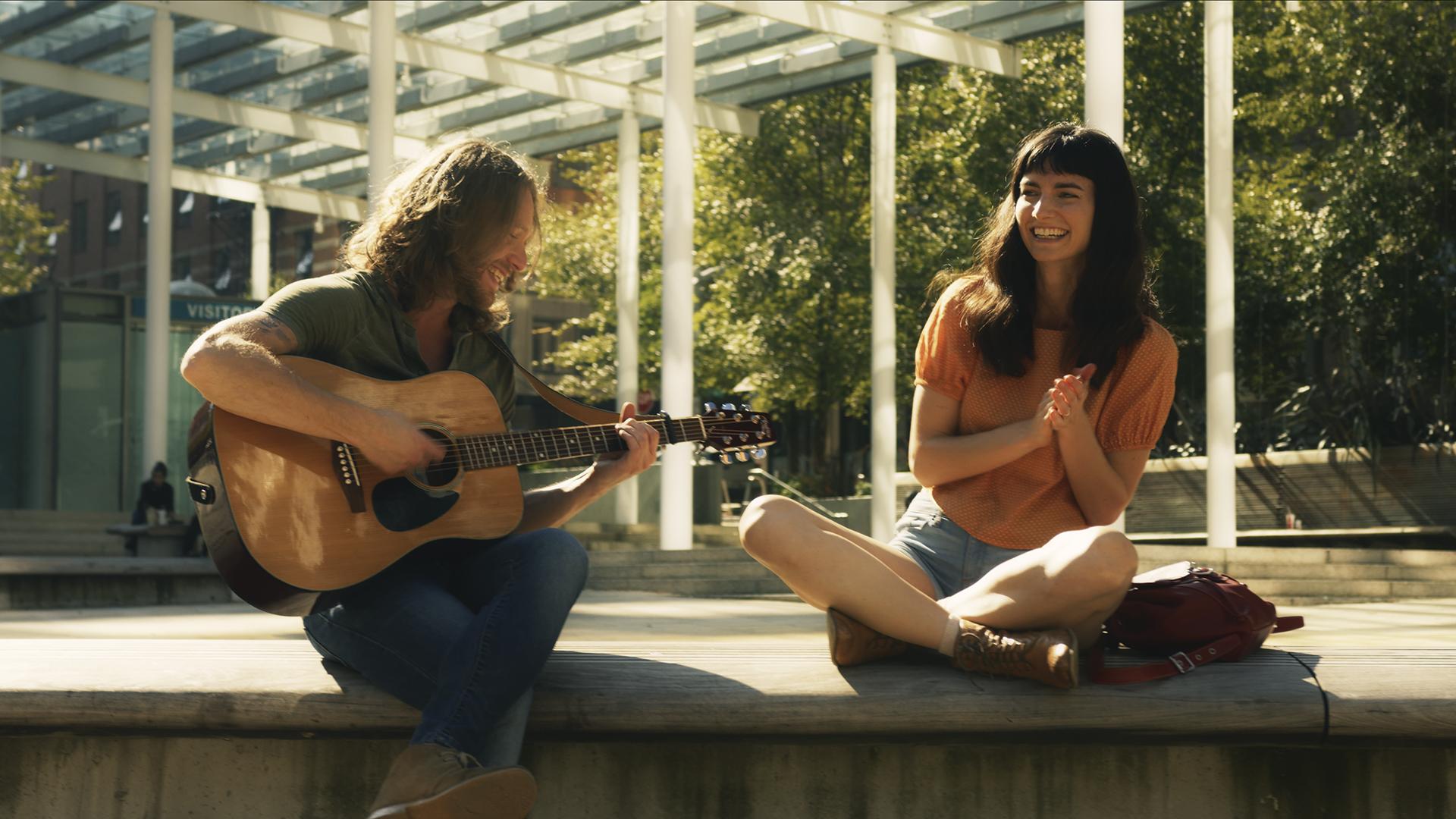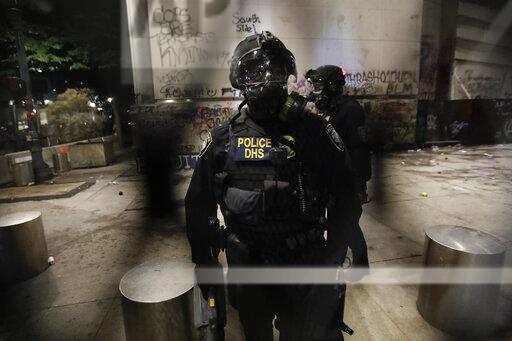Civil rights activist and public speaker DeRay Mckesson spoke Thursday, March 15, to an audience of 500 attendees about systemic racism, power in society and power within protest.
Mckesson’s speech and meet-and-greet, held in downtown Portland’s First Congregational United Church of Christ, raised money for the criminal justice reform organization Oregon Justice Resource Center. Activists including Portland’s Resistance leader Gregory McKelvey, lawyers and self-proclaimed social justice advocates who said they are inspired by Mckesson’s podcast “Pod Save the People” asked questions during the talk, and some paid extra for a meet-and-greet with the speaker.
Mckesson is a Black Lives Matter activism veteran and former school administrator who participated in protests in Ferguson, Mo. and Baltimore, Md. He spoke about how a majority-white community like Portland can help people of color affect social change, as well as the way in which he believes the criminal justice system gives certain people power over others.
Introducing Mckesson, OJRC Director Bobbin Singh said, “We are now in a moment where there are those who want punishment versus those who want real and productive solutions.”
A romantic notion of activism
Mckesson opened his speech with personal anecdotes about his past as a teacher. He described once teaching a group of sixth graders who wanted to leave math class early to go to gym class. Mckesson obliged, but shortly after his students left, they came back realizing gym was not as fun as it sounded. Mckesson related the curiosity of middle schoolers to the curiosity of protesters.
“I realized [my students] were in love with the idea of gym more than the actual work of gym,” Mckesson said. “In this moment, more people are in love with the idea of resistance more than the work of resistance.”
The work of resistance, Mckesson explained, involves educating oneself about the past and the aspects of society that cater to certain groups of people but may be designed to oppress others.
The justice system
Specifically with regard to the justice system, Mckesson explained that some states take away felons’ voting rights even after they have served their time. “In three states, if you get a felony, you lose your voting rights for life,” Mckesson announced. “This is by design.”
“I’ve never been to a protest where the police have kept people safe,” responded Mckesson when asked about the Portland Police Department’s involvement in street-activism. “People should not have to be on the streets to be heard. We’re all in the streets in response to things that have happened, so the police and everybody else should be making sure those things never happen in the first place.”
Currently the American Civil Liberties Union is suing PPB for alleged excessive use of force against six protesters, including McKelvey’s partner Katherine Stevens, throughout eight months of 2017.
Race and power
Mckesson added he believes there is an imbalance of power in the United States in terms of race and the systematic privilege of white people. “We’ve created a world where white is normal and others are just deviations,” Mckesson said. “That is power.”
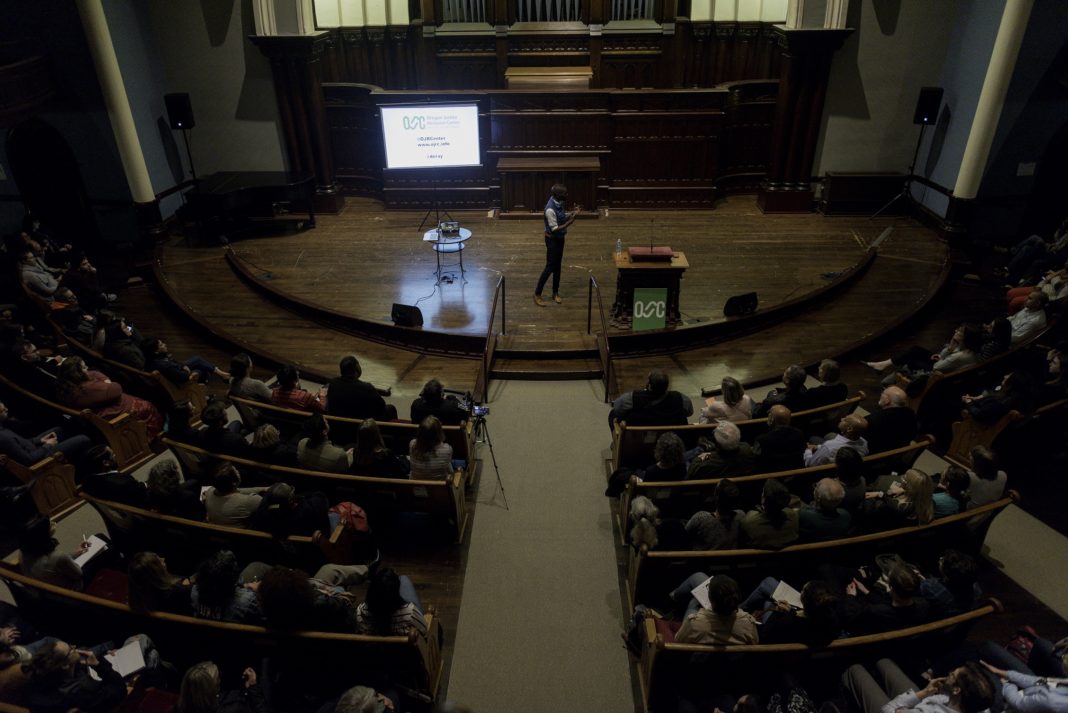
Although Portland is prominent in the activism world, little racial diversity exists within the city. When supporting movements like Black Lives Matter, Mckesson said he believes there is a difference between a white ally and a white accomplice.
“An ally is someone who stands and says ‘I love you’ from a distance, but an accomplice is someone who stands with you through the struggle,” explained Mckesson when asked how white individuals can successfully support movements without over-utilizing white privilege.
“So, when people acknowledge their privilege and when they understand how the system works and where they are located in it,” Mckesson continued, “the best thing they can do is try to dismantle the system and rebuild a new one.”
“What are actions and things that especially white people can do to be accomplices rather than allies?” Mckelvey asked from the audience.
Standing by and watching isn’t an effective method of help, Mckesson shared. “You have to get close to the issue so that you can understand well enough to make an impact.”
“There are a lot of people doing incredible work,” Mckesson continued. “[White people] can join them in the fight.”

